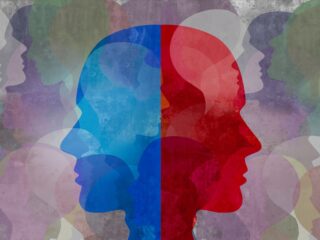Drug and alcohol withdrawal refers to the physical and psychological symptoms that occur when someone stops using drugs or alcohol after a period of consistent use. Withdrawal can vary widely depending on the type of substance, duration of use, and individual factors. The drug and alcohol withdrawal effects can range from mild discomfort to severe complications, making it a critical aspect to consider when addressing detox and addiction treatment.
Understanding Withdrawal
Withdrawal is a complex and often challenging process that individuals experience when they abruptly stop or reduce their use of drugs or alcohol. It also begins when individuals start detox treatment. It occurs because the body and brain have become dependent on the substance, leading to physical and psychological changes.
Withdrawal symptoms can range from mild, such as headaches and restlessness, to severe complications, like seizures or hallucinations. The type of withdrawal experienced depends on several factors, including the specific drug and how long it was used.
Alcohol Withdrawal Symptoms
Common alcohol withdrawal symptoms include headache, nausea, sweating, anxiety, insomnia, and irritability. More severe symptoms may include confusion, hallucinations, seizures, and high blood pressure. The severity of these symptoms can range from mild discomfort to life-threatening conditions such as delirium tremens.
Delerium Tremens
Delirium tremens (DTs) is a potentially life-threatening and severe alcohol withdrawal symptom. It usually occurs within 48-72 hours after the last drink and is most common in individuals with a history of heavy, prolonged alcohol use.
Symptoms of delirium tremens include severe confusion, disorientation, hallucinations, intense agitation or restlessness, rapid heartbeat, high blood pressure, fever, sweating, and even seizures.
Opioid Withdrawal
Withdrawal from opioids can be intensely uncomfortable but is not usually life-threatening. Symptoms typically begin within 6-12 hours after the last dose and may include anxiety, agitation, muscle aches, insomnia, yawning, sweating, runny nose, teary eyes, diarrhea, nausea, vomiting, and goosebumps.
Opioid withdrawal can be challenging. There are medications used during medically supervised detox to help individuals manage their symptoms safely.
Heroin Withdrawal
Withdrawal from heroin can be physically and emotionally challenging. Symptoms of heroin withdrawal can start within 6-12 hours after the last dose and peak in severity within 1-3 days. These symptoms may include intense cravings for the drug, restlessness, muscle and bone pain, insomnia, nausea, vomiting, diarrhea, sweating, and chills.
Stimulant Withdrawal
While the withdrawal process may not be as physically intense as that of opioids or alcohol, it can still be mentally and emotionally challenging. Common symptoms of stimulant withdrawal include fatigue, depression, irritability, increased appetite, and sleep disturbances. In some cases, individuals may experience intense cravings.
Cocaine Withdrawal
Cocaine withdrawal is characterized by a variety of psychological symptoms, as well as some physical discomfort. Common psychological symptoms include depression, anxiety, agitation, irritability, and intense cravings for the drug. Physical symptoms can include fatigue, insomnia, increased appetite, and difficulty concentrating or experiencing pleasure.
Crack Cocaine Withdrawal
Crack cocaine withdrawal can be particularly intense. The symptoms include severe cravings, irritability, restlessness, anxiety, depression, fatigue, insomnia or excessive sleepiness, increased appetite, and vivid dreams. It is not uncommon for individuals going through crack cocaine withdrawal to also experience paranoia or hallucinations.
Meth Withdrawal
Meth withdrawal can be physically and emotionally challenging. Symptoms often begin within the first 24 hours after the last use and can last for several weeks.
Common symptoms include fatigue, increased appetite, insomnia or excessive sleepiness, irritability, anxiety, depression, difficulty concentrating, and intense drug cravings. In some cases, individuals may also experience paranoia or psychosis.
Benzo Withdrawal
Common symptoms of benzo withdrawal include anxiety, insomnia, restlessness, irritability, muscle tension or pain, tremors, sweating, nausea, and vomiting. In some cases, individuals may experience more severe symptoms like panic attacks, hallucinations, or confusion.
Medications Used in Withdrawal
There are several medications commonly used in the management of drug and alcohol withdrawal effects. For alcohol withdrawal, medications such as benzodiazepines are often prescribed to alleviate symptoms and prevent complications like seizures or delirium tremens. Other medications, like naltrexone, may be used to reduce cravings.
When it comes to opioid withdrawal, medications like methadone, buprenorphine, or naloxone can be utilized to help manage symptoms and support individuals in detoxification. These medications work by binding to opiate receptors and reducing withdrawal discomfort while decreasing the risk of relapse. Medications that target specific withdrawal symptoms may also be used during detox to assist in the recovery process.
Can Withdrawal Be Fatal?
In some cases, withdrawal from certain substances can be potentially life-threatening. For example, severe forms of alcohol withdrawal, such as delirium tremens (DTs), can be fatal if not properly managed or treated promptly. Withdrawal from benzodiazepines can also lead to seizures that could have serious consequences.
Is Inpatient or Outpatient Rehab Best During Chemical Withdrawal?
The choice between inpatient or outpatient rehab during chemical withdrawal depends on several factors, including the severity of the drug and alcohol withdrawal effects. Inpatient rehab is recommended for individuals with severe withdrawal symptoms, co-occurring mental health disorders, a history of relapse, or an unstable home environment that hinders recovery. In an inpatient setting, individuals receive 24/7 medical supervision, medication-assisted treatment, and support.
Outpatient rehab may be suitable for individuals with milder withdrawal symptoms and a stable support system at home. Outpatient programs provide flexibility but require strong commitment and accountability from the individual in order to avoid relapse.
Drug and Alcohol Withdrawal Treatment in Columbus, OH
Ohio’s #1 addiction treatment center, Ohio Addiction Recovery Center in Columbus, OH, offers personalized detox and rehab programs to manage drug and alcohol withdrawal effects. Our experienced team provides comprehensive care, ensuring your safety and comfort as you begin your recovery journey. Contact us today to discover a new life free from substances.






